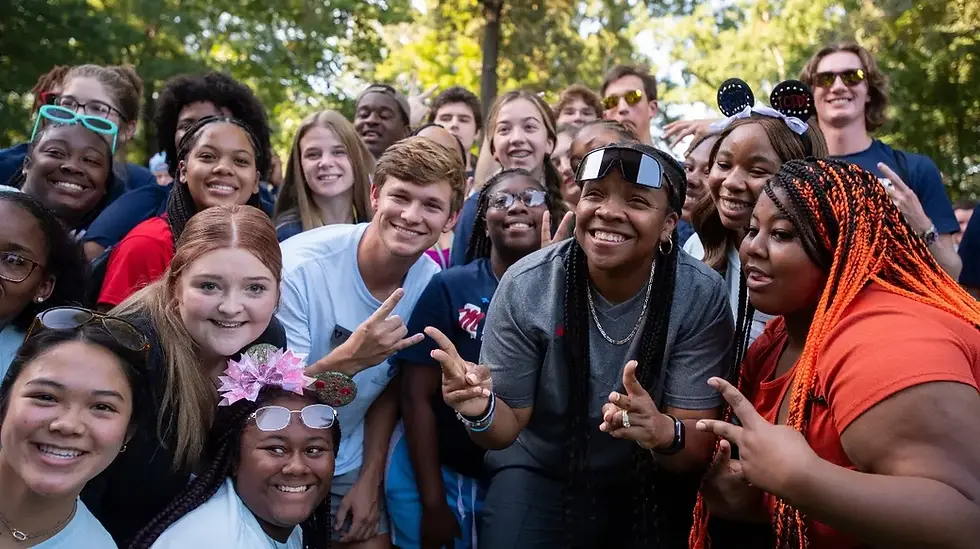Portland will consider race, gender to 'support' disruptive students
- Joanne Jacobs

- Dec 7, 2023
- 2 min read
Portland (OR) schools will design "support plans" for disruptive students that consider trauma, race, gender identity/presentation and sexual orientation, reports Alec Schemmel.

The "new disciplinary policy also eliminates mandatory suspensions for students who threaten or harm others." Those students may be removed from the classroom, but not from the school.
To settle a month-long teachers' strike, the district agreed to center school disciplinary procedures on "racial equity and social justice" and use "restorative" practices to maintain discipline.
"Portland-area students experienced an uptick in fights and behavioral problems after returning to the classroom for the 2021 school year," reports Schemmel. The district responded by shifting from "punitive" responses to "restorative justice practices," said Char Hutson, a district official.
The new agreement "waters down language related to student behavior and discipline," writes Schemmel.
Instead of "handling" a disruptive student, for example, the agreement calls on school officials to "support" that student. The agreement also no longer refers to "unacceptable" student behavior, instead citing "continuous disruptive" behavior. The district used to create a "behavior correction plan" for a misbehaving student — now, school officials craft a "support plan" for such a student.
Do "restorative practices" work? Rick Hess of the American Enterprise Institute talks with Harvard's Jal Mehta about the gap between theory and practice.
"The idea here is that when an offense has been committed, students and an adult will come together to talk about the issue," says Mehta. "Using a structured protocol, the offender will generally get to hear about what sort of harm they caused and offer some amends, and then the community gets to decide together how to move forward." The problem is that it's hard to implement.
The intentions may be good, says Hess, but the results are disappointing. He thinks restorative justice is "willfully naive" and ignores human behavior. "Wired to test boundaries," children "benefit from norms, expectations, and predictability even more than grown-ups do," he argues.
Restorative justice "asks more of teachers and other adults than traditional modes of discipline," says Mehta. The first wave of studies show conflicting results: Some programs show "significant benefits" and others "negative unintended consequences." Moving too fast without building educators' skills will lead to poor quality programs and backlash, he predicts. But, if done well, the idea can treat students with respect as people capable of reflection and improvement.
It's not just implementation and training, Hess responds. "Piled under mounds of eduspeak is a presumption that traditional norms are suspect, boundaries are outdated, and personal responsibility is a matter of 'blaming the victim'.” That's why "students and teachers not infrequently report that schools that adopt 'restorative' practices feel less safe and more chaotic."



The latest "reform" by public schools? Chicago Mayor Branden Johnson has announced the end of academically challenging education in the Windy City. He plans to close/convert all of Chicago remaining elite K-12 public schools so that "equity" rules rather than excellence. The goal is to assure that all students graduate equally stooopid. Teachers will be expected to teach to the lowest common denominator. And yet some still think the school choice option is the wrong way to go.
Utopia is not an option. But CLEARLY the best option is universal school choice. At least give parents the choice as to which school they prefer, and give the schools the choice regarding what policies they will implement. That way at least SOME kids will get a quality education. Most school boards today are LESS than useless. The school board members are usually elected with teacher labor union money, so they have their marching orders before they assume office. School boards are built in the premise that a public school monopoly is the best way to go.
The irony is that such policies designed to "restore justice" actually increase racism by all. The KKK is DELIGHTED with these programs. Like the BLM, the Klan LOVES growing racial hatred and division. Perhaps the two groups should merge!
The problem with being a school board member or upper level school administrator is that one gets to see the raw data on the achievement gap and the discipline gap. The question is what to do about it. Many of the right just want to ignore it or accept it as part of the nurture/nature argument while progressives probably overrespond to it. Almost no one has a good policy recommendation.
>Instead of "handling" a disruptive student, for example, the agreement calls on
>school officials to "support" that student. The agreement also no longer refers
>to "unacceptable" student behavior, instead citing "continuous disruptive" behavior.
>The district used to create a "behavior correction plan" for a misbehaving
>student — now, school officials craft a "support plan" for such a student.
Why not just give all students a high school diploma on their 16th birthday and be done with it? Indeed, why not make this retroactive to every adult without a high school diploma? Then on their 21st birthday, give them all a BA degree in the subject of their choice? What's the use of all this tedious classroom teaching anyway?